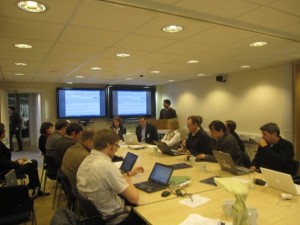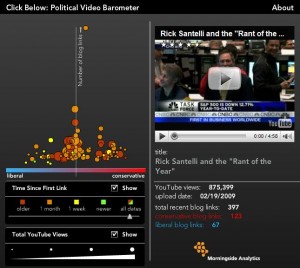Alpacas Launch War on Chinese Censors!
March 12th, 2009 — Chris Van BurenThis morning my blackberry buzzed with a link to this gem of an internet censorship story (Hat Tip: Byran Haut). I haven’t had a chance until now to pile on, and of course Andrew Sullivan has already beaten me to the punch.
Regardless, here’s the story. Since China moved to contain the pro-democratic Charter 08 movement by shutting down sympathetic online forums, China’s massive internet firewall has become even more draconian. The government’s public campaign has always about pornography, but this is often convenient cover to censor sites with uncomfortable political content. Bloggers, long burdened by the censorship regime, have even started referring to site takedowns as “harmonizations,” a joke on President Hu Jintao’s constant reference to the “harmonious society” of Confucian social theory.
Chinese netizens, in a move as frankly subversive as it is deeply funny, are striking back. A video released last January plays a seemingly innocuous children’s song about alpacas, or “river-mud-horses”, who fight against a band of “river crabs” (a near homonym to the word for “harmony”) seeking to invade their fields. As it turns out, these mythological creatures sound like something quite else in spoken Chinese. VideoGum has the translation the Times won’t give you:
The children are singing about grass mud horses (“Fuck Your Mother”) who live in a desert (“Your Mother’s C-word”) (ha), and defeat the river crabs (a word synonymous with “censorship.”) Do you know what this means? It means YouTube is IMPORTANT.
At first, it may tempting to see the video as childish, like “Ataturk is gay” and “Thai king monkey” videos which convulsed censors, Turkish and Thai respectively. On the other hand, as those episodes illustrate, where the law punishes open speech about sensitive material, farce may be the only remaining outlet. Make me think of the many vulgar Revolutionary War cartoons printed with gleeful impunity. Also remember that the Internet is much more heavily filtered in China than in either Thailand or Turkey.
As the Times’ writer eloquently puts it:
The grass-mud horse is an example of something that, in China’s authoritarian system, passes as subversive behavior. Conceived as an impish protest against censorship, the foul-named little horse has not merely made government censors look ridiculous, although it has surely done that.
It has also raised real questions about China’s ability to stanch the flow of information over the Internet — a project on which the Chinese government already has expended untold riches, and written countless software algorithms to weed deviant thought from the world’s largest cyber-community.
As I have said several times now on this blog, costly censorship regimes like the Chinese will never be successful in the long run. Too costly and too ineffective. The Internet, and indeed language itself, resist this kind of comprehensive control. Nor is this movement a fringe; the joke is rapidly spreading across China, no doubt bristling the country’s zealous censors.
An irony, of course, is that “river crab” was scrubbed from Wikipedia yesterday. Someone seems to think it is a “NON notable neologism.” Only when the “grass mud horses” are victorious, my friend. Only then.








 Click Here
Click Here